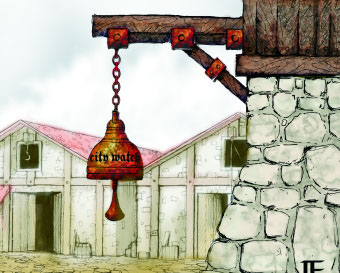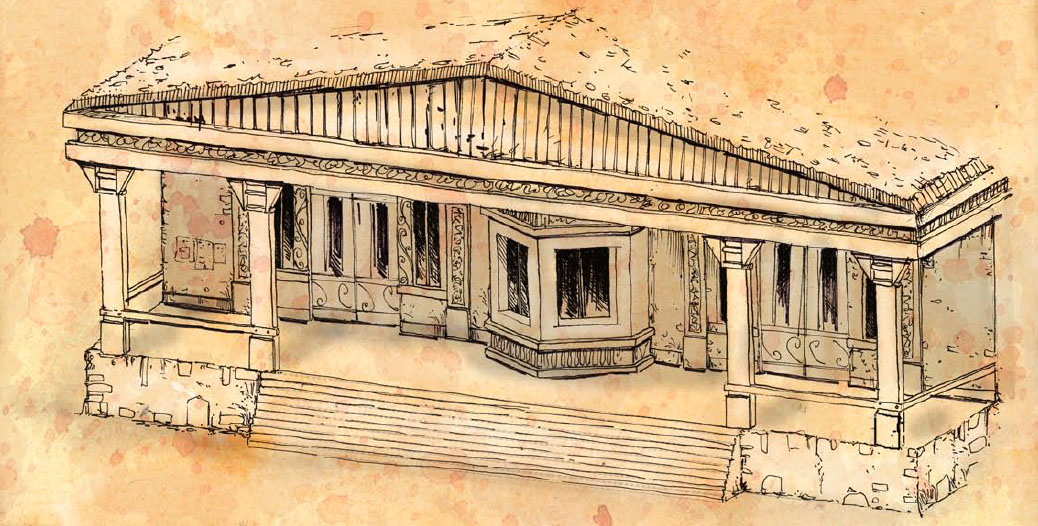IN THE SHADOW OF THE SPIRE
Session 10B: Retreat to the Surface
Ranthir began marking their path back to the entrance with chalk marks. He also took out pen, ink, and parchment and began drawing an ornate, beautiful, and highly detailed map of their explorations.
Any character, regardless of medium, can be interpreted as a collection of specific traits: They’re brave. Tall. Conflicted. In love. Impatient. Educated. Handsome. Et cetera.
It’s also not particularly revelatory that, in a roleplaying game, the traits of a character will often by mechanically defined: It’s not just that a character is “smart”, that intelligence is given a number and the effects of that intelligence will manifest through the mechanics of the game.
(Of course not all of the traits of an RPG character will be mechanically defined. And even those that are will often – or should often – manifest themselves in non-mechanical ways: Being “smart”, for example, should have impacts on many actions that are not resolved through mechanics.)
It’s perhaps most typical for a character’s mechanical traits to be designed: The player wants Ranthir to be smart, so they assign a high score to Ranthir’s intelligence. They want Ranthir to be trained in the arcane arts, so they assign skill points to his Spellcraft skill.
By contrast, what I often find interesting are the traits which unexpectedly emerge from the mechanics.
For example, Ranthir’s player thought it would be appropriate for the character to be skilled in calligraphy, so he put some points into Craft (calligraphy). When Ranthir began mapping a dungeon during play and the player decided to make a Craft (calligraphy) check to see how attractive the resulting map was, what was unanticipated was the high die roll would cause the other characters to remark on the map. And, more importantly, that high check resulted in Ranthir’s beautiful maps (and his peculiar obsession with the accuracy of those maps) becoming a recurring theme of the campaign and a memorable trait of the character.
Dominic, meanwhile, was wandering the city and trying to get his bearings. (But, for some reason, he kept finding himself back at Delver’s Square…)
Of course, success is not the only way such traits can emerge. Dominic’s poor sense of direction, for example, was not something that was specifically designed. In terms of mechanical definition, in fact, the character wasn’t particularly stupid or anything. But a pattern of poor rolls on very specific types of checks (across multiple skills, actually) caused this element of the character to emerge, at which point the player (and the rest of the group) took it and ran with it.
the character wasn’t particularly stupid or anything. But a pattern of poor rolls on very specific types of checks (across multiple skills, actually) caused this element of the character to emerge, at which point the player (and the rest of the group) took it and ran with it.
This would notably lead, at one point, to a skill check where Dominic succeeded and knew which way they needed to go… except none of the other characters believed him, because of his notoriously poor sense of direction.
Obviously any trait can be improvised into existence as one explores their character through play. But I think these emergent traits – aspects of the character which would not exist without the mechanical impulse – are a particularly fascinating part of what happens at the table during a roleplaying game. They’re a great example of the sense of discovery which is one of the primary attractions of the medium for me. They’re also exemplary of the fact that the division that some see between the mechanical component of an RPG and the creative component of an RPG doesn’t really exist: When used correctly, mechanics are an improv seed. They’re the equivalent of an audience member yelling out a random word and pushing you in directions you could never have anticipated or prepared for.













